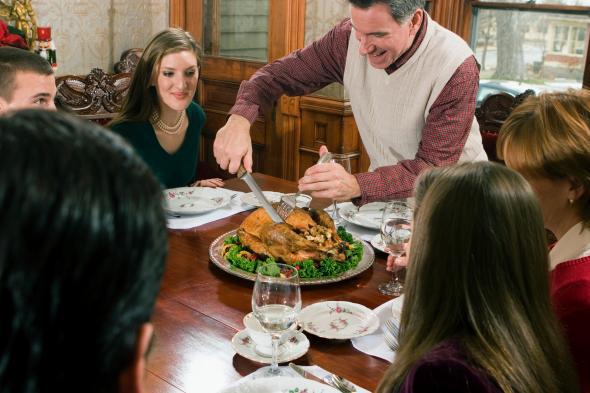Since the election, the anti-racist group Showing Up for Racial Justice has seen a surge of interest from white people concerned about the effects of a Trump presidency on marginalized communities. A meeting of the New York City chapter of SURJ that I attended out of curiosity last week attracted about 600 people—more than 10 times the usual attendance. SURJ is a home for white people who want to dismantle racist institutions; the organization operates independently from black-led groups such as the Black Lives Matter Network but holds itself accountable to communities of color.
The newfound interest in SURJ is a testament to the sense of urgency that many white people, myself included, are feeling about social justice in the age of Trump. So what can anti-racist white people do now to help the people of color who are most likely to be targeted and hurt by the Trump administration? SURJ’s answer is one that many white people will find deeply uncomfortable: Talk to their Trump-supporting relatives at Thanksgiving. SURJ has released a discussion guide to help people talk to their friends and family about racism, and it’s also offering a text hotline: Anyone who texts SOS to 82623 will receive talking points and, if things get really desperate, a short coaching call. “If we’re going to make significant change in our country, we have to break some of the customs we have as white people,” reads SURJ’s discussion guide. “One of those is not to talk about race at the dinner table.”
SURJ’s discussion guide urges compassion, patience, and realism. “Conversations with Trump supporters aren’t about proving yourself right, they are about changing hearts and minds,” reads the guide. SURJ urges white liberals to listen to their conservative relatives, to avoid using social-justice buzzwords and concepts such as “white privilege” and “systems of oppression,” to share personal stories, and to try to appeal to your relatives’ value system. SURJ also suggests a few responses to common conservative refrains, like “I’m not a racist for supporting Trump” and “Trump will keep us safe.” But don’t expect to magically convince your anti-immigration uncle that Trump is a dangerous demagogue between carving the turkey and dishing out the pumpkin pie. “You are not likely to change someone’s world view in one sitting,” SURJ reminds us—but you can find points of agreement and build a rapport that will make it easier to open more conversations about race in the future.
If your family is a clan of diehard liberals, you might think you’re off the hook for this conversation—but SURJ says otherwise. “All White folks need to talk about racial justice this year, including those of us who see ourselves as progressive,” reads the guide, which emphasizes that scapegoating working class, rural voters for Trump’s election is counterproductive. So instead of griping about all the small-minded former factory workers who helped to empower this monster, talk about how racism manifests itself in your own community, and what you can do to fight it. Feeling complacent for having voted for the nonauthoritarian candidate won’t do anyone any good—but brainstorming ways to make your local institutions less racist might.
